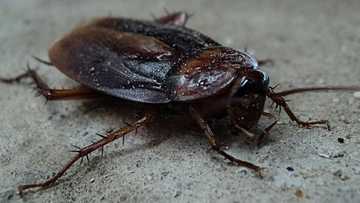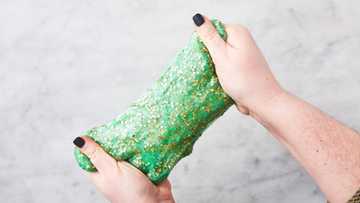How to dispose of cooking oil when it can no longer be used
Most people agree that some of the best foods are prepared by frying, but the remaining grease can make a real mess in your kitchen when it comes to disposal. Everyone should learn how to dispose of cooking oil after browning their brussels sprouts, deep-frying potatoes, or deep-frying turkey.
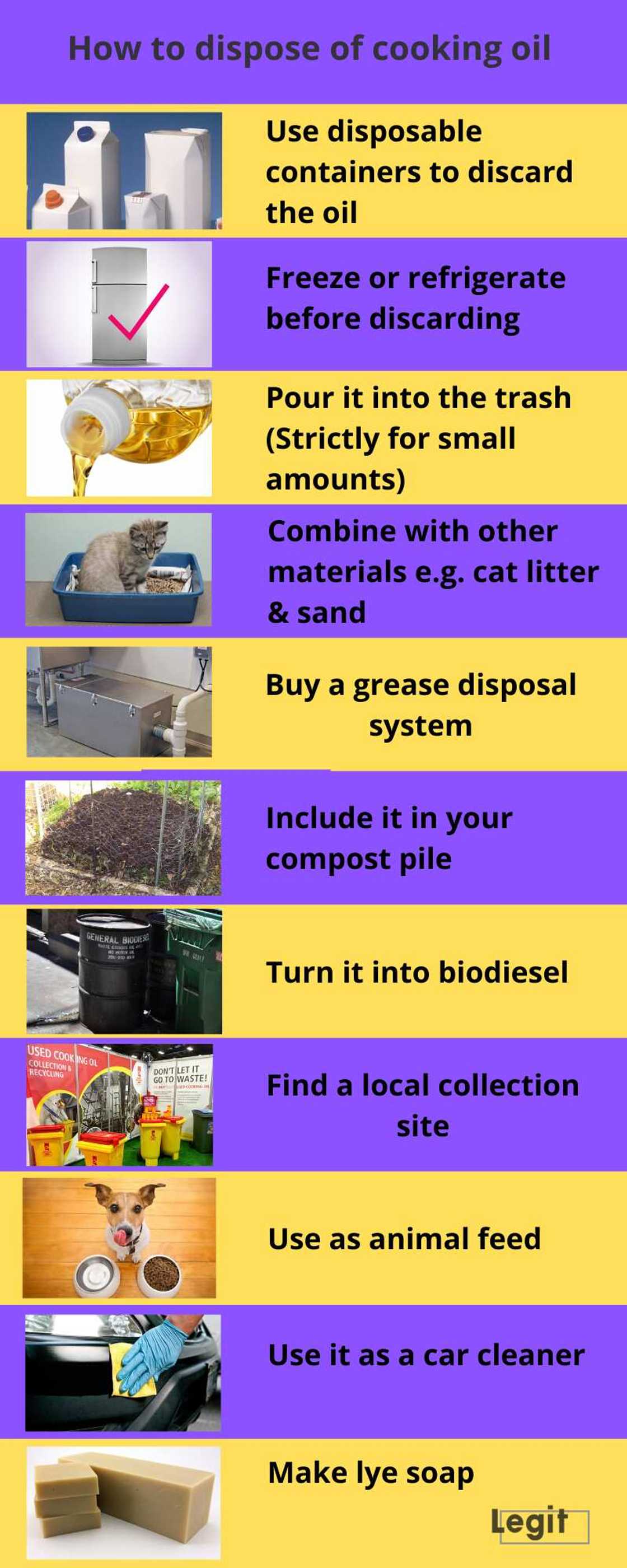
Source: Original
There are so many effective uses of used fryer oil, whether it is animal-based or vegetable-based, which makes it one of the most reusable products in your home.
However, it may not always have other uses in the home, so it is necessary to learn how to dispose of cooking oil when it can no longer be used.
Here are the top methods on how to dispose of grease.
How to dispose of cooking oil
If you want to dispose of cooking oil, follow one of the safe alternatives explained below:
1. Use disposable containers to discard oil
How do you dispose of cooking oil at home? The first step of oil disposal is to make sure that it is completely cool. Always remember that when hot, it can be dangerous, so you should be careful not to burn yourself.
After it cools completely, transfer it to a disposable container with a lid. Common containers that work well include cardboard milk cartons and wax or plastic-lined paper containers.
Styrofoam and other takeout containers are also good alternatives. Always choose non-breakable containers with resealable lids.
When your container is full, place it in a plastic bag to prevent leakage, and then throw it in the garbage.
Besides helping you with cooking oil disposal, this method is a great way to recycle used containers.
2. Freeze or refrigerate the oil before discarding it
If you are wondering what to do with used cooking oil when you do not have non-recyclable containers, you need to freeze or refrigerate it first to harden it.
To do this, pour it into an old can and put it in the freezer or fridge. Once it is solid enough to come out of the can in one piece, it is ready to be thrown into the trash.
If you have oil or grease that is not more than one cup, you can pour it into a coffee mug and set it in the fridge. Once it solidifies, scoop it out and drop it into the trash with a spoon.
Make sure that you wipe out the mug with a paper towel or napkin before washing it.
3. Pour it into the trash (Strictly for small amounts)
If you want to learn how to dispose of bacon grease or how to get rid of cooking oil that is only about quarter a cup, you can simply pour it into the trash. Small amounts can be safely disposed into a partially filled plastic trash bag.
Cool it first and line the trash bag with paper towels, food scraps, or other absorbent materials to help contain it.
This ensures that you do not have a pool of oil that can potentially leak from the bottom of the bag.
NB: Always let it cool first, as hot grease will burn the trash bag.
4. Combine the oil with other materials
Another alternative for people wishing to know how to dispose of vegetable oil or grease at home is mixing it with an absorbent material like cat litter, sand, and sawdust before disposal.
These materials easily soak up the liquid thus preventing the occurrence of a mess. If you do not have any of these materials at hand, save old oil in a used container until it is time to empty the litter box then dump it into the litter before tossing out.
5. Buy a grease disposal system
You may want to consider getting a grease disposal system kit if you do a lot of frying. A used oil disposal kit consists of a plastic receptacle with foil-lined bags that can hold up to 32 ounces of grease.
Place a bag in the container and pour the cooled oil inside it. When it is full, seal the bag and throw it in the garbage.
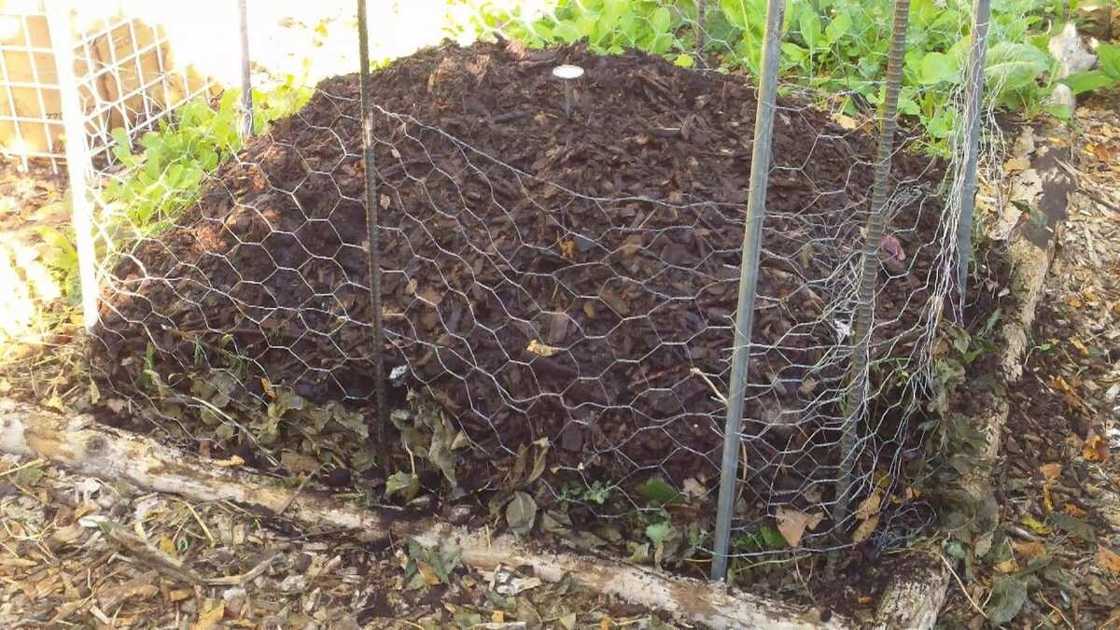
Source: UGC
6. Include it in your compost pile
Earthworms love cooking oil and grease. Including it in your compost pile may be a planet-friendly option.
However, too much of the fat may attract more than earthworms or can create hydrophobic barriers, which means that too much grease in the compost can reduce airflow and water thus affecting the composting process.
NB: If you are a composting beginner, you may want to read more about adding oil to your compost pile before doing it. Remember that too much of it can do more harm than good.
Make sure you only use vegetable oil because animal-based fats will attract nuisance animals and cause pathogens to form.
7. Turn it into biodiesel
Did you know that large amounts of cooking fats can also equate to large amounts of fuel? Some restaurant chains and other large establishments have already made a business out of it.
They recycle and sell used cooking oils and fats at an industrial level to undergo a treatment process that turns it into biodiesel. This method of used cooking oil disposal is more applicable to people who fry foods on a large scale.
However, if you are up for a challenge at the household level, you can find professionals in your region to guide you on how to dispose of frying oil and grease by converting it into biodiesel.
8. Find a local collection site
If you are unsure about how to dispose of cooking oil from turkey fryer or from frying any other food but cannot use the options above, consider finding a local collection site.
Some municipalities collect oil for recycling. All you have to do is use your search engine to find an "oil disposal near me facility."
This option is great because it keeps fats out of the landfill and collection sites usually have systems in place to turn them into alternative energy such as biodiesel.
To use this option, follow the simple steps below:
- Strain it to remove any food particles.
- Store it in sealable containers.
- Deliver the filled containers to your local collection site.
When using this option, you can mix different kinds of oils and fats in one container unless the collection site asks you to do it differently. You do not need to refrigerate the collection containers.
If no option exists, call your local fire department to see if used oil is accepted.
9. Use in animal feed
If you are a farmer who needs to know how to dispose of used cooking oil, you can use it as animal feed in a number of different ways.
The first option is drizzling some of it on the food for your dog or cat which will improve the taste for them and keep their coats shiny. You can also mix some of it with the birdseed in your bird feeder.
10. Use it as a car cleaner
Small amounts of oil can be used to remove tough dirt and debris from car surfaces, including the brakes and the body.
Put a little bit of it on a rag or paper towel and wipe the affected areas. It can effectively remove dirt, grime, pollen, bugs, and other gunk.
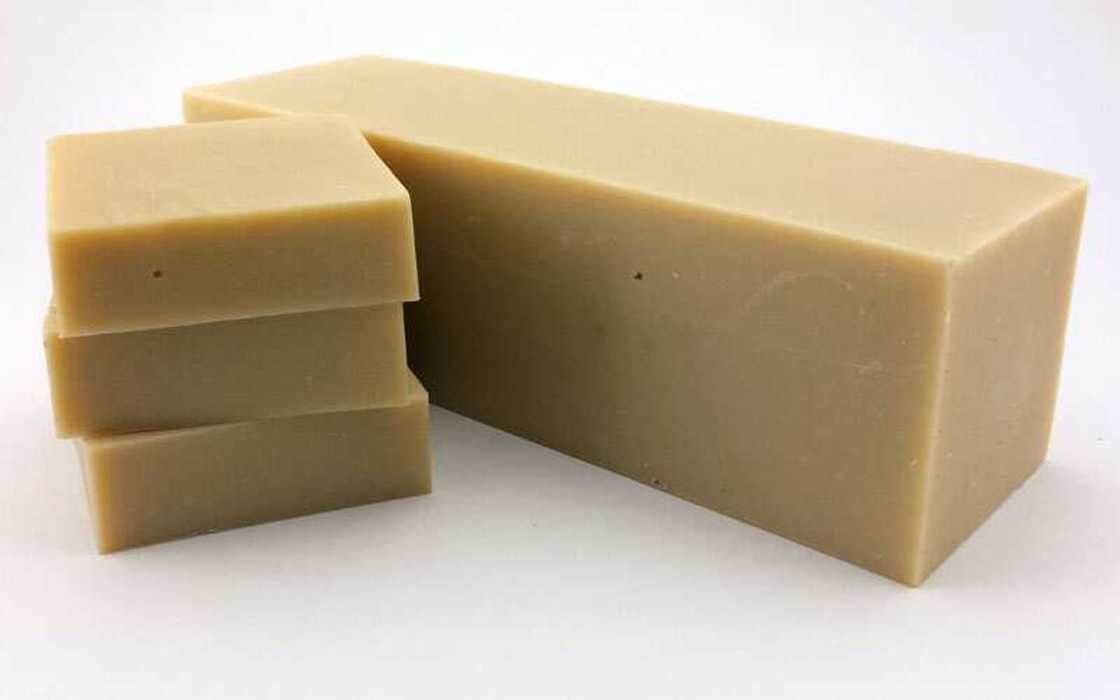
Source: UGC
11. Make lye soap
You can use oil to make lye or bar soap.
Lye soap is made when a solution of lye, which is an alkali, is mixed with vegetable oils to cause a chemical reaction. This breaks down the fats into fatty acid chains, and the lye is neutralized.
Don'ts of disposing of cooking oil
Here is some more helpful information that will come in handy when learning how to dispose of oil.
Can I pour vegetable oil down the drain?
No, you should not as it eventually solidifies. In the solid-state, it can block plumbing and piping, which allows for sewage backup into homes.
Most people assume that pairing the used grease with hot water and pouring it down the drain will suffice, but drains do not have a proper grease management system.
In case you accidentally pour it down the drain, pour baking soda and white vinegar down to clear some of the grease away. You can also try an enzyme-based drain cleaner which helps neutralize grease in both metal and PVC pipes.
Disposing of cooking oil in garden
Learning how to dispose of olive oil or any other cooking fat requires caution. Dumping it in your garden is not a disposal option.
If you do this, it will eventually end up in the sewer system and cause clogs there. Besides, animal and vegetable-based oils and greases can cause issues for wildlife when left outside.
Can I dispose of large amounts of grease or fat in the compost pit?
No, you cannot as this will cause issues with airflow and moisture thus ruining your fertilizer.
NB: Animal fats should be kept out of your compost pile because they will smell and eventually attract vermin that could make your compost unhealthy.
Learning how to dispose of cooking oil when it can no longer be used, both at the household and industrial-scale level, is necessary for everyone. Use the tips above to get rid of used cooking fats and grease properly.
Source: Legit.ng




